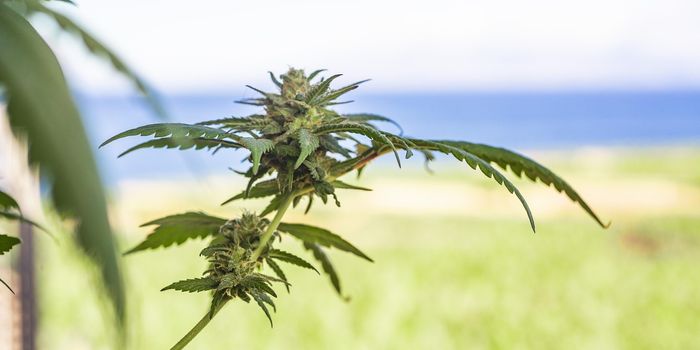Is Marijuana Good for Insomnia?
According to the Centers for Disease Control, a third of adults report that they get less than the recommended amount of sleep. It is estimated that around 50 to 70 million Americans have been diagnosed with a sleep disorder. To treat these diseases patients are usually prescribed sleep aids such as Ambien®, Dalmane®, Halcion®, Lunesta®, and/or others. However, these medications often cause side effects such as daytime drowsiness, weakness, loss of coordination, nausea, etc., and this is just for Ambien® alone. With so much research on medicinal marijuana these days, is there any room for cannabis on this list?
Photo source: Pexels.com
Many consumers and retailers would probably recommend an indica-based strain. Anecdotally, these strains are thought to be more calming, relaxing, and sedative. Perfect for sleep trouble right? Well, we at LabRoots are big fans of empirical data. So, what does the science say? Is marijuana a good choice?
First, we have to acknowledge that there are many sleep disorders out there: insomnia, excessive daytime sleepiness, chronic nightmares, etc. Sleep is also a complex behavioral phenomenon, with different stages related to patterns of brain activity (measured as brain waves by an EEG) associated with each of them. During normal sleep, you pass through these stages in a cyclical manner. Sleep disorders could stem from a range of physiological pathologies which affect the normal sleep cycle, resulting in the manifestation of a particular disorder.
With that in mind, the effects of cannabis could be beneficial or harmful based on its effects on returning abnormal sleep patterns back to normal. For instance, insomnia, one of the more common sleep disorders, is associated with increased activity in the sympathetic nervous system, including altered heart rate, cortisol release, and an increased in the amount of time spent in Stage 2 of sleep (defined by the presence of "beta" waves).
Cannabidiol (CBD) may help for insomnia. One animal study has shown that CBD increases sleep in rats. Furthermore, CBD has been shown to block anxiety-induced insomnia. Corroborative evidence for the potential anxiety-reducing effects of cannabinoids has been demonstrated in a study using a synthetic cannabinoid to reduce insomnia in PTSD patients. On the other hand, another study found that CBD and THC combined decreased the amount of time spent in Stage 3 sleep (defined by the presence of delta waves). Stage 3 is very critical in restoring the body from the day's wear and tear.
Photo source: UnSplash.com
Research on the effects of whole marijuana has led to conflicting results. There is not much consensus yet on whether using marijuana helps restore normal sleep. However, it appears that using marijuana with higher CBD concentrations may help more than strains with higher THC to CBD ratios. It may also be specific to the individual patient, dose, and route of administration.
Sources: Centers for Disease Control, Sleep Disorders and Sleep Deprivation: An Unmet Public Health Problem, www.RxList.com, Sleep Foundation, Cleveland Clinic, Current Psychiatry Reports, Journal of Psychopharmacology, Neuropharmacology,










